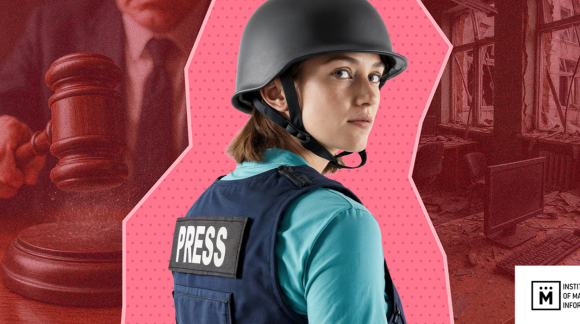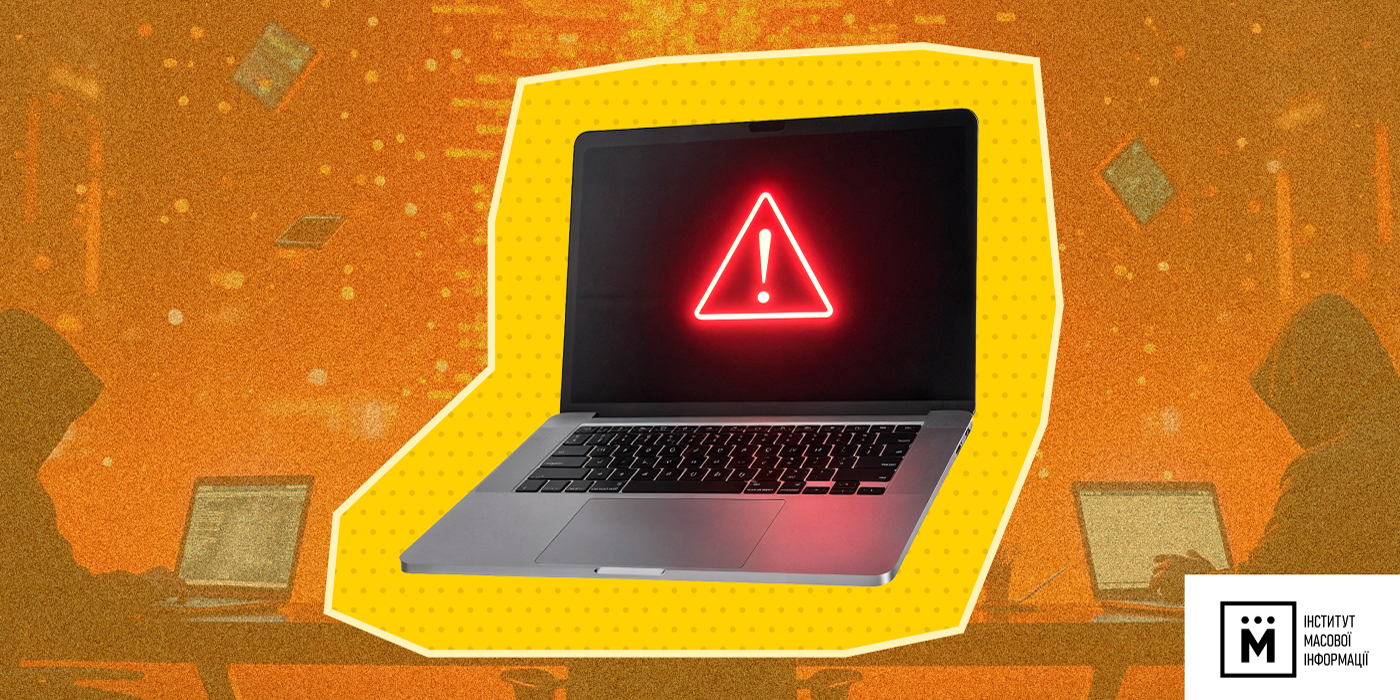
‘Fakes are a serious threat’, ‘Fakes are a drop in the sea of information warfare’, ‘If you fight fakes, you’ll have no time to do your own work’. Such thoughts which seem polar at first glance could be heard within the framework of the News Integrity Learning Labs held on November 28-29 under the auspices of Internews Network and the Institute of Mass Information. The discussion was conducted, on the one hand, by Ukrainian theorists and media practitioners and, on the other hand, by representatives of US and European Union journalism departments and institutes.
Nobody denied that this is, in fact, an effective element of propaganda. It’s just a matter of your method of immersing yourself in the problem, “time and inspiration”. The fact that one of the four thematic discussions was devoted to the fake was proof enough that it’s an important topic.
False information: Ukrainian experience
As Jeff Jarvis from the City University of New York remarked, “in the United States we often think that if something happens in the world, it happens here, but in reality, the technology of confronting manipulation is a Ukrainian experience”. This phrase became a sort of motto for the entire discussion. IMI Executive Director Oksana Romanyuk, who moderated the meeting, admitted that Ukraine was simply forced to confront the huge scale of information aggression, so we had to respond promptly and accurately.
Fakes have become a natural element of Russia’s hybrid warfare against Ukraine, and later against the civilized world as a whole, but, in fact, Ukraine was the first place where all the basic techniques were tested.
As Yevhen Fedchenko, founder and head of the StopFake project at the Mohyla School of Journalism founded in the spring of 2014, noted, his team had no idea how much fake information there would be and how long this information warfare would last. They just started their work. ‘We wanted to find out the mechanism of creating a fake,’ Fedchenko said, noting that the project currently has 11 language versions (in other countries volunteers translate the contents of the Ukrainian site and also fill their own pages with original content related to fakes in their respective countries).
Fedchenko also noted that there were 18 main narratives of Russian propaganda, and this classification allowed to quickly find and expose new fakes because their appearance revolves around these themes. The phenomenon of information warfare is not a completed reality, it is still being formed, fakes are becoming more complex. According to the head of the StopFake project, the current trend is the denial of Russia’s participation in the events in the East of Ukraine, and this includes Western journalists based in Russia and scholars who say that Russia is too weak to wage such a war, ‘ Earlier, Russians were proud of their influence, now tactics have changed – they conceal their influence’, – said Yevhen Fedchenko.
In addition to narratives of Russian propaganda, StopFake also investigated the channels of its dissemination. According to Fedchenko, first place goes to the Russian Ministry of Defense TV channel Zvezda, second place goes to the website ukraina.ru, a part of MIA-News, and third place goes to the RIA-News information agency.
‘The Russian Federation’s so-called media sector is involved in the distribution of fake information, says Yevhen, we track fake experts, real experts are also often included in fake news or even books, as in the case of Edward Lucas. Fake experts from “all industries” are also involved, and when their activities are revealed, they sometimes disappear for a while, just to reappear later. For example, there were a lot of “experts” on the MH-17 catastrophe.’
The head of the Mohyla School of Journalism also said that they ask students to re-examine the facts, and this is a part of their professional education. There is a separate course on fact-checking; assistance is also provided to other universities.
‘We need more practical elements, courses, manuals,’ – concluded Yevhen Fedchenko.
Volodymyr Prytula, the editor of the website krymr.com, which is a project by Radio Liberty, said in his speech that in their work they don’t aim to expose fakes, but since there are so many of them in the Crimean informational field, they are forced to respond, although it takes up a lot of time. The website’s high quality work has borne fruit: 1.5 million people per month visit krymr.com, which is three times more than Kryminform, the most popular Crimean-based resource.
When the source of the fake is a politician
Olena Shkarpova from the VoxChek project said that they are aiming to catch fakes in politicians’ statements, that is, “on the way out”. The Ukrainian mass media often distribute explicit lies and manipulations (very often for money, publishing such statements as ads), without any criticism, and the population believes these statements. As an example, Shkarpova spoke of Yulia Tymoshenko and Oleh Lyashko, who call the medical reform a genocide. People believe their vocal statements more and think that the reform will bring the closure of hospitals in rural areas, that they will have to play twice now, “officially and in the form of bribes.” At the same time, the truth about the reform voiced by Prime Minister Volodymyr Groisman or Petro Poroshenko (in the last two years he spoke on the subject of medical reform only once) sounds sluggish, unconvincing. Shkarpova bases her conclusion, among others, on the views of Russian scientist Sergiy Guriev, who said: “to put an end to fakes in politicians’ statements, the truth must be interesting, and the politician must be charismatic”.
Speaking during the second part of the discussion, Olena Holub, a spokesperson for IMI, said that both the politicians and the media undergo a weird metamorphoses before and after the parliament’s adoption of a certain reform: before its adoption the reform is actively criticized, if not devoured by political populists, but after the reform’s adoption, all criticism suddenly ceases.
Another trend in finding lies in the words of politicians is counting their unfulfilled promises. Tetyana Honchenko, an editor of the website 061.ua from Zaporizhzhia, decided to count the level of fulfilled promises by city mayor Volodymyr Buryak and revealed that his unfulfilled promises were at 70%. To analyze this was a rather difficult task since the authorities don’t like to cooperate with media which are not under their control.
As for fakes in regional media, according to Honchenko, they are difficult to trace, because they come from social media and are lost in the mass of other news. It’s impossible to hire a separate fact checker because it’s too expensive (in comparison, according to Jarvis, the German magazine Der Spiegel has 70 fact-checkers). There are only 4 journalists in 061‘s editorial staff, and this is considered a lot. However, 061 has 8 employees in the advertising department and the site is quite self-sufficient.
Fakes under the guise of humor: experience of Georgia and Moldova
Oksana Romanyuk asked whether a separate TV channel in Russian could solve the problem of fighting fakes and provide truthful information. The participants expressed their doubts since the fake’s refutation is always less popular than the fake itself which is directed at human emotions. However, the StopFake project also has TV programs in Russian and English.
Internews representatives from Moldova (Corina Cepoi) and Georgia (Maya Mikashavidze) said that in one way or another such “propaganda metastases” (in Maya’s words) need to be confronted, since the media, which disseminate opinions rather than facts are abundant in both countries. In Georgia, fakes are distributed through so-called “satirical sites”, but they play their destructive role. Few believed that this was done on purpose. Yevhen Fedchenko continued on this topic, referring to his own experience, “Sometimes it seems that certain things are ‘self-evident’, but each time you face the fact that it’s not the case. You have to explain things because a lot of people have naive approaches. And for journalists, this is especially dangerous. We must protect the media ecosystem from unverified resources. Don’t call people who work under the guise of journalism journalists.”
Fedchenko said that it was necessary to use combined fighting methods, to attract civil society organizations from other countries where there is a similar situation. Governments should be attracted only when radical steps are needed, roughly in cases similar to the aggression against Ukraine, when authorities turned off Russian TV stations and blocked Russian social media: this was an impetus for the development of Ukrainian media. Corina Cepoi replied that for Moldova, she sees a ban on access through court decisions, following the example of Lithuania, when Russian TV stations were disconnected for spreading hate speech.
A threat or not a threat?
Diana Dutsyk from Detector Media NGO said that fakes are just one of the manifestations of information warfare: “Manipulation is carried out on many levels: the spread of half-truths and the lack of truth. Pushing the buttons laid down earlier, including in the Soviet days.” According to the expert, in Ukraine, and above all in the East, it is necessary to form new value models and new solutions to a disorientated audience.
Kateryna Kobernyk from TSN believes that if you unknowingly post a fake, and later remove it and apologize, it’s not such a terrible thing. She sees a bigger problem, instead, in the fact that there are many websites in Ukraine that “do not check anything.”
Jeff Jarvis said that one of the methods of verified work that Western journalists use is the idea of “strategic silence,” not using rumors and reporting trolls: “We have to know the origin of the rumor, to understand if we’re doing someone a favor by publishing it,” said the American media expert.
A summary of the discussion is the words of Yevhen Fedchenko who said that when journalism is diluted with propaganda, it discourages consumer confidence, and thus the media may slowly die. “We don’t know when the war with fakes will end, so we just do our work”, – summed up the expert.
Roman Kabachiy, IMI




